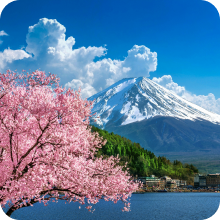Budget Travel Tips for Japan: How to Visit Japan on a Budget
Japan, a country where tradition seamlessly blends with innovation, is often perceived as an expensive travel destination. However, with a bit of savvy planning, you can explore its rich culture, stunning landscapes, and mouth-watering cuisine without breaking the bank. Here’s how you can travel to Japan on a budget without sacrificing the experience.
Table of Contents
- Pre-Trip Planning: Budgeting and Saving on Flights
- Affordable Accommodation Options in Japan
- Cost-Effective Transportation in Japan
- Eating Well on a Budget in Japan
- Free and Low-Cost Attractions in Japan
- Shopping Smart: Souvenirs and Budget Shopping Tips
- Budget-Friendly Day Trips and Excursions
- Money-Saving Travel Tips and Hacks
- FAQs
Pre-Trip Planning: Budgeting and Saving on Flights
Finding Cheap Flights to Japan
Booking flights to Japan at a reasonable price requires a mix of timing and persistence. Generally, the best deals are found by booking several months in advance or snagging last-minute sales. Flexibility with your travel dates can also lead to significant savings. Websites like Skyscanner, Google Flights, and Momondo are essential tools for comparing prices across different airlines. Don’t forget to set up fare alerts to catch a price drop.
Setting a Travel Budget
Creating a travel budget might not sound exciting, but it's crucial for staying on track. Allocate funds for key expenses such as accommodation, transportation, food, and attractions. Leave some room for unexpected splurges – you never know when a quirky souvenir might catch your eye. A flexible budget ensures that you're prepared for the unexpected without having to sacrifice those bucket-list experiences.
Affordable Accommodation Options in Japan
Staying in Hostels and Capsule Hotels
Japan’s hostels are more than just budget beds; they often provide a unique glimpse into the country’s vibrant culture. Capsule hotels, a Japanese invention, offer a futuristic yet cost-effective lodging option. These tiny pods are surprisingly comfortable and often come with amenities like shared lounges and on-site vending machines. Websites like Hostelworld or Booking.com are your go-to for finding these quirky, budget-friendly options.
Budget-Friendly Ryokans and Guesthouses
If you’re yearning for a more traditional experience, consider staying in a ryokan or guesthouse. While some ryokans can be pricey, many offer budget options, especially in less tourist-heavy regions. These stays often include a tatami mat room, futon bedding, and sometimes a communal bath (onsen), giving you an authentic taste of Japanese hospitality. It’s advisable to book in advance, especially during peak seasons.
Alternative Accommodation: Couchsurfing and Airbnb
Couchsurfing in Japan is a fantastic way to save on accommodation while meeting locals who can offer insider tips. Alternatively, Airbnb provides a range of options from private rooms to entire apartments at competitive rates. Both options not only cut costs but also offer a more personal glimpse into Japanese life. Remember to check the reviews and communicate with your hosts before booking to ensure a smooth experience.
Cost-Effective Transportation in Japan
Understanding Japan Rail Pass and Other Passes
The Japan Rail Pass (JR Pass) can be a game-changer for those planning to explore multiple cities. Available only to foreign tourists, the pass offers unlimited travel on JR trains, including the famous Shinkansen (bullet train), for a fixed period. However, it’s not always the cheapest option. For shorter trips or single-region explorations, regional passes like the Kansai Thru Pass or Hakone Free Pass may provide better value.
Using Public Transportation Like a Local
Japan’s public transportation is efficient, clean, and often surprisingly affordable. Subway and bus networks in cities like Tokyo and Kyoto are extensive and user-friendly. Purchasing a Suica or Pasmo card allows you to seamlessly hop on and off public transport, and you can even use these cards at convenience stores. For longer journeys, consider the highway buses, which are a budget-friendly alternative to the Shinkansen.
Cycling and Walking: Exploring Japan on Foot
For the truly budget-conscious (and fitness enthusiasts), exploring Japan by foot or bike is not only economical but also offers a more intimate experience of the country’s charming neighborhoods. Many cities offer bike rentals at reasonable rates, and Japan’s well-maintained paths and respectful drivers make cycling a safe option. Walking tours, whether self-guided or free with a local guide, are another fantastic way to immerse yourself in Japanese culture.
Eating Well on a Budget in Japan
Affordable Japanese Cuisine: Where and What to Eat
Japan is a foodie’s paradise, and you don’t have to spend a fortune to eat well. Conveyor belt sushi (kaiten-zushi), ramen shops, and izakayas (Japanese pubs) offer delicious meals at wallet-friendly prices. Don’t overlook convenience stores (konbini) like 7-Eleven or Lawson – their bento boxes, onigiri (rice balls), and hot snacks are surprisingly tasty and budget-friendly. Street food markets, especially during festivals, are also great spots for cheap and authentic bites.
Saving Money on Food and Drinks
Supermarkets in Japan often discount bento boxes, sushi, and other prepared foods later in the evening – a perfect opportunity for a cheap dinner. Additionally, some restaurants and cafes offer set meals (teishoku) that provide excellent value. When it comes to drinks, consider refilling a reusable bottle at water stations or buying drinks from supermarket shelves, which are cheaper than vending machines.
Free and Low-Cost Attractions in Japan
Visiting Temples, Shrines, and Gardens
Japan is dotted with beautiful temples, shrines, and gardens, many of which are free or have a nominal entrance fee. Sites like Tokyo’s Meiji Shrine, Kyoto’s Fushimi Inari Shrine, and Nara Park offer a peaceful retreat from the bustling cities without costing you a yen. Public gardens, especially during cherry blossom or autumn foliage seasons, are must-visit spots that offer breathtaking views at little to no cost.
Exploring Museums and Cultural Sites
Japan’s museums are as diverse as they are numerous. From art and history to quirky, niche interests, there’s something for everyone. Many museums offer free admission on certain days or discounted entry for students and seniors. The Tokyo Metropolitan Government Building offers a free observation deck with panoramic views of the city, including Mount Fuji on a clear day.
Enjoying Japan’s Natural Beauty for Free
Japan’s natural landscapes are breathtaking and, best of all, free to enjoy. Whether it’s hiking in the Japanese Alps, visiting beaches in Okinawa, or strolling through bamboo forests in Kyoto, nature lovers will find plenty of budget-friendly activities. The country’s well-marked trails and accessible natural parks make it easy to explore without the need for expensive guided tours.
Thanks for visiting our blog, are you planing to travel to Japan? Check out our eSIM Japan.

Shopping Smart: Souvenirs and Budget Shopping Tips
Best Places for Budget Shopping in Japan
If you’re looking to bring home a piece of Japan without blowing your budget, head to 100-yen shops like Daiso, where you can find everything from traditional ceramics to quirky gadgets. Local markets are another treasure trove of unique and affordable souvenirs. For those who love fashion, outlet malls offer branded goods at discounted prices. Just remember, shopping smart is about knowing where to go and what to buy.
Tips for Bargaining and Getting the Best Prices
Bargaining isn’t common in Japan, but there are still ways to ensure you’re getting the best deal. Look for seasonal sales, discount racks, and duty-free shops, especially in tourist-heavy areas. If you’re shopping for electronics or high-end goods, consider asking for a discount, especially if you’re paying in cash – some stores are open to negotiation under these circumstances.
Budget-Friendly Day Trips and Excursions
Affordable Day Trips from Major Cities
Japan’s efficient transport network makes it easy to embark on day trips without spending a fortune. From Tokyo, consider visiting Nikko, famous for its UNESCO World Heritage sites, or Kamakura, known for its giant Buddha statue and coastal views. From Kyoto, head to Nara for its friendly deer and historic temples. Regional passes and discounted train tickets can help keep these excursions affordable.
Joining Free and Low-Cost Guided Tours
Many cities in Japan offer free walking tours led by volunteer guides who are passionate about sharing their knowledge. These tours are not only informative but also a great way to connect with locals. If you prefer a more structured experience, consider joining a low-cost group tour. These often include transportation and entry fees, making them a good value for travelers on a budget.
Money-Saving Travel Tips and Hacks
Staying Connected on a Budget
Staying connected while traveling in Japan is easier and cheaper than you might think. Instead of expensive roaming charges, consider purchasing a local SIM card or renting a pocket Wi-Fi device. Free Wi-Fi is available in many public spaces, cafes, and train stations, but it’s always a good idea to have a backup plan. Offline maps and translation apps can also save you data and reduce the need for constant connectivity.
Navigating Japan’s Tax-Free Shopping
Japan offers tax-free shopping for tourists, which can lead to significant savings on purchases over 5,000 yen. Many stores in tourist areas are tax-free, and they will handle the paperwork for you. Remember to bring your passport when shopping and check whether the tax-free offer applies to the items you’re purchasing. Be aware of the rules regarding tax-free items, such as not consuming them before leaving Japan.
Before you take off make sure to check with local government of the travel status.
FAQs
Is Japan really expensive to travel to?
While Japan has a reputation for being expensive, it’s entirely possible to travel on a budget by staying in affordable accommodations, using public transportation, and eating at local spots.
What’s the best way to save money on transportation in Japan?
The Japan Rail Pass or regional transport passes can save money on long-distance travel. In cities, use public buses, subways, or consider cycling and walking for even greater savings.
How much should I budget for daily expenses in Japan?
On a budget, you can expect to spend around $50-$100 per day, which includes accommodation, food, transportation, and entry to attractions. This varies depending on your travel style and activities.
Are there any free attractions in Japan?
Yes, many temples, shrines, and gardens are free or have a low entrance fee. Public parks and natural attractions like beaches and hiking trails are also available at no cost.
Can I find cheap meals in Japan?
Absolutely. Convenience stores, ramen shops, and conveyor belt sushi offer tasty and affordable meals. Street food and supermarket bento boxes are also excellent budget options.









